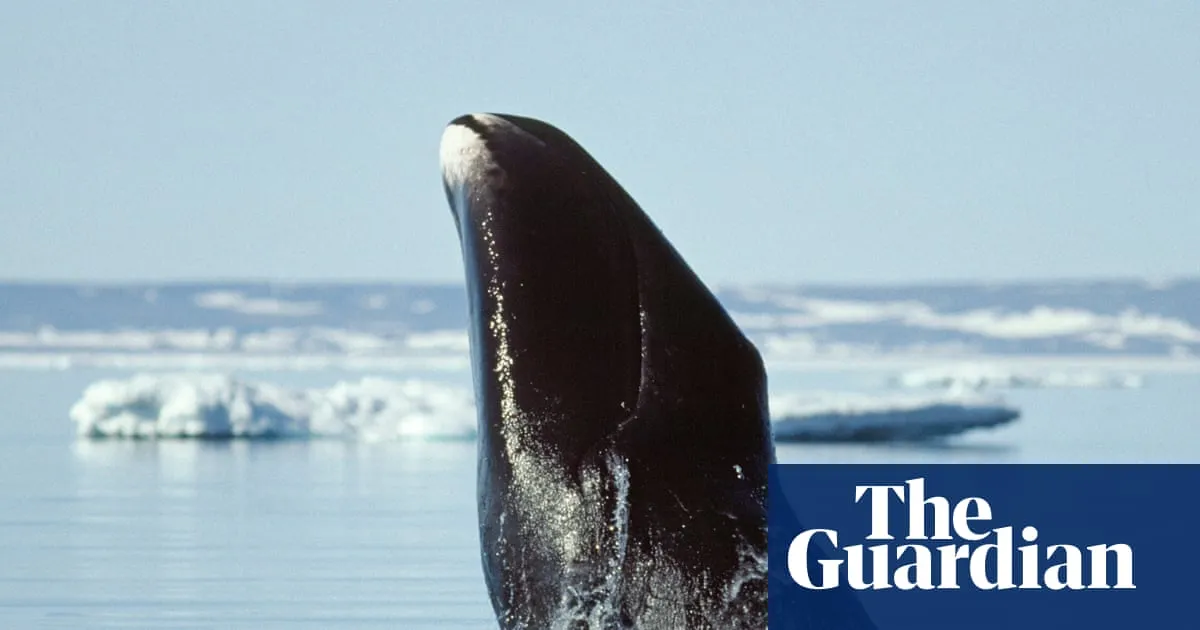
With a remarkable lifespan of over 200 years, the bowhead whale is recognized as the longest-living mammal on our planet. Despite its impressive longevity, the exact reasons behind the survival of these massive 80-ton creatures remain largely a mystery. Recent scientific discoveries, however, are shedding light on this enigma and inspiring research aimed at enhancing healthy aging in humans. Scientists are excited about the potential implications for protecting organs and tissues during surgical procedures and transplantations.
“Our primary goal was to unravel the mechanisms behind the exceptional longevity of the bowhead whale,” stated Prof. Vera Gorbunova, a biologist at the University of Rochester in New York. The research team discovered that a significant part of this longevity may be attributed to the whale's ability to conduct highly accurate and efficient DNA repair.
All living organisms experience DNA damage throughout their lives. While cells work tirelessly to repair this damage, the repairs are not always successful. Accumulated mutations can elevate the risk of diseases such as cancer and contribute to the aging process by impairing cellular and tissue functions.
The researchers found that bowhead whales excel in repairing a specific type of DNA damage known as double-strand breaks. This exceptional capability results in a lower mutation rate among these whales. “Our findings indicate that effective DNA repairs play a critical role in promoting longevity,” Gorbunova explained.
Through a series of controlled experiments on whale cells, the researchers identified that a protein called CIRBP significantly enhances DNA repair mechanisms. This protein is activated in response to cold exposure, a common environmental factor for bowhead whales living in Arctic waters. Remarkably, these whales produce 100 times more CIRBP than humans, which may be a key factor in their longevity.
The research team concluded, “This strategy, which focuses on repairing damaged cells rather than eliminating them, could be a contributing factor to the bowhead whale's remarkable lifespan and low cancer rates,” as noted in their publication in the journal Nature.
Following their findings, the team examined the effects of increasing CIRBP levels in human cells. They discovered that enhancing the protein doubled the rate of repair for double-strand breaks. Additional experiments conducted on fruit flies revealed that increased CIRBP levels extended their lifespan and improved resilience against mutation-inducing radiation.
“Our initial conclusion is that there is significant potential for improvement in human DNA repair mechanisms,” Gorbunova commented. “Traditionally, it was believed that our DNA repair systems were already optimal; however, the bowhead whale demonstrates that there is room for enhancement.”
While the specific role of DNA repair in the bowhead whale's longevity remains uncertain, the research team is raising mice with elevated CIRBP levels to investigate their lifespan. They are also interested in studying whether individuals who frequently swim in cold water or take cold showers exhibit increased levels of this protein, and how long such boosts last.
“We must determine if brief periods of cold exposure are sufficient, and we will also explore pharmacological methods to achieve similar effects,” Gorbunova added. “After all, not everyone is keen on cold water swimming.”
Prof. Gabriel Balmus, a specialist in DNA damage and repair at the UK Dementia Research Institute at the University of Cambridge, remarked, “Enhancing our cells’ ability to repair DNA could potentially decelerate the aging process and mitigate associated diseases. This idea is supported by evidence from various species where stronger DNA repair correlates with longer lifespans. However, translating this knowledge into human applications will be complex, requiring a careful balance between resilience and the body's natural renewal limitations.”